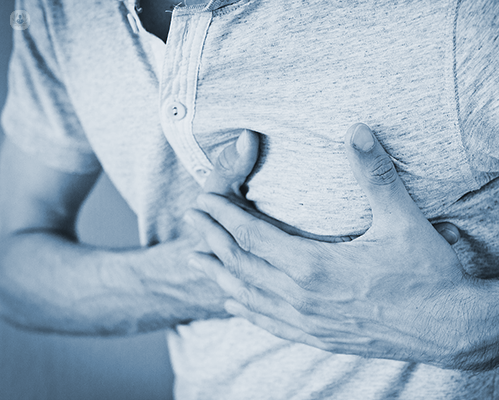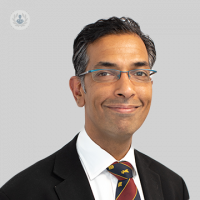Hiatal hernia treatment: what happens after surgery?
Written by:A hernia happens when an internal body part pushes its way into a space where it doesn’t belong. Hiatal hernias are caused by the upper part of the stomach pushing up through the diaphragm, and into the chest. There are various causes, including obesity, pregnancy, straining, or coughing, and treatment may not always be necessary due to the fact symptoms sometimes do not present. However, in some cases, hiatal hernia surgery may be the solution.

How is hiatal hernia surgery performed?
Hiatal hernia surgery is usually performed as a minimally invasive procedure, known as laparoscopic surgery. The surgeon makes incisions in the abdomen, which allow them to insert surgical instruments, and the laparoscope, which allows the surgeon to see the inside of the body and internal organs on a monitor as they perform the surgery. Other procedures, such as open hernia repair, where a larger surgical incision is made, and the stomach is pulled back into place, are less common but remain an option in some cases.
How long does hiatal hernia surgery take?
Usually, patients undergoing hiatal hernia surgery come in on the day of their procedure, although pre-operative tests will have been performed at an earlier time – at least eight hours before the operation takes place. Surgery is performed under general anaesthetic, which means the patient is not awake while the procedure takes place. Most procedures take 2 to 3 hours to complete. After the operation, the patient is kept in the post-operative care unit until they are fully awake. The hospital stay in total is usually around 48 hours.
How long is the recovery time for hiatal hernia surgery?
As with any surgery, rest and care are advised when being discharged from the hospital after the procedure takes place. Once at home, the patient should keep activity light, and after around a week can build up to normal activity such as walking, driving, and light work (nothing strenuous or physical).
Patients can usually return to work after about ten days, but it is important to follow the correct aftercare, including a liquid diet that must be followed for around 2-4 weeks after surgery. The move to soft foods can then begin, gradually building up to a more regular diet over time.
The doctor will give you aftercare advice, including dietary suggestions, or breathing and coughing exercises that can help strengthen the diaphragm.
Does hiatal hernia surgery pose any risk?
Any surgery carries its own risk, but hiatal hernia surgery is generally successful and considered to be low-risk. Very rarely, complications can include post-surgical bleeding, an adverse reaction to the anaesthetic, and possible infection. These risks will always be discussed with the surgeon in advance.
Return to your doctor or surgeon if you experience any of the following:
- A fever over 38°C
- Blood or pus coming out of the wound
- Reddening or swelling around the wound
- Difficulty breathing or persistent cough
- Persistent difficulty swallowing or drinking liquids
- Increased size or swelling of the abdomen
- Pain which doesn’t go away with prescribed medication


